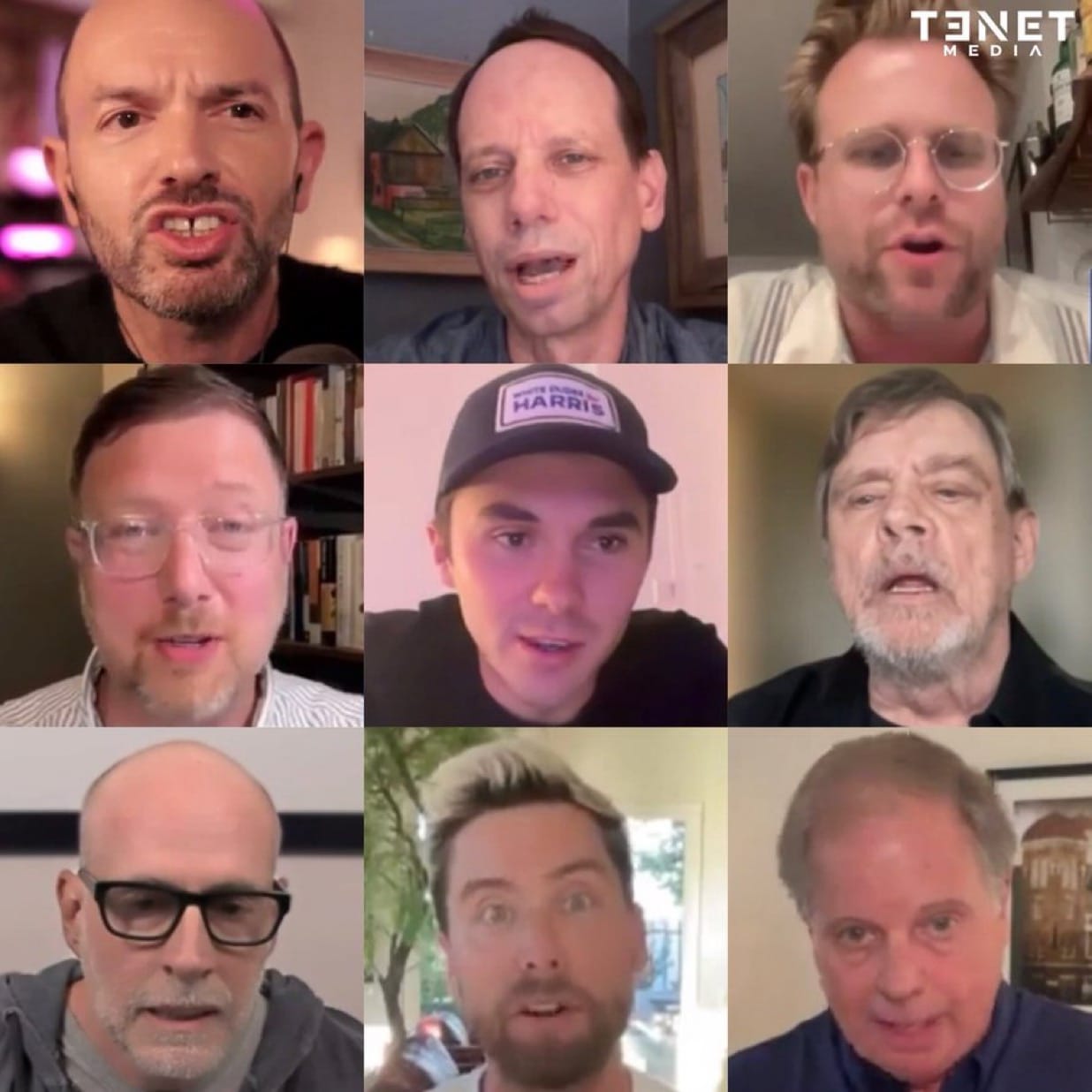White Dudes for Harris" Zoom Call Sparks Wave of Internet Memes and Criticism
The "White Dudes for Harris" Zoom call, organized to rally support for Vice President Kamala Harris's presidential campaign, has become the subject of widespread ridicule and criticism on the internet. The event, which was attended by over 100,000 participants, including celebrities like Jeff Bridges and

The "White Dudes for Harris" Zoom call, organized to rally support for Vice President Kamala Harris's presidential campaign, has become the subject of widespread ridicule and criticism on the internet. The event, which was attended by over 100,000 participants, including celebrities like Jeff Bridges and J.J. Abrams, aimed to raise funds and connect supporters for Harris's campaign.
However, the call quickly became a target for online mockery, with many users on social media platforms like Twitter criticizing the participants as "beta males" one man claim to be fighting against "toxic masculinity." The hashtag #whitedudesforharris began trending, with users sharing memes and jokes about the event.
White Dudes For Kamala Harris meeting starts off by attacking masculinity:
— End Wokeness (@EndWokeness) July 30, 2024
pic.twitter.com/GA5PcJ39cw
Some of the criticism focused on the participants' discussions about the need for a "safe space" and their self-deprecating comments about being "wimpy guys." Critics argued that the event was a prime example of "cuckoldry," a term often used by masculine men in internet circles to describe men who are perceived as weak or submissive.
Exclusive live look at the White Dudes for Harris Conference call pic.twitter.com/ubNaaaM6rI
— Being Libertarian (@beinlibertarian) July 30, 2024
The call also drew attention to the broader issue of gender dynamics in politics. Some commentators suggested that the event was an attempt to counter the perception that Harris's support base is primarily composed of women and minorities. However, the backlash against the "White Dudes for Kamala Harris" call has raised questions about the effectiveness of such efforts in appealing to a broader demographic.
This is the main organizer for the “30,000 White Dudes for Kamala” 😳
— Steven 🇺🇸 (@SirStevenKJ) July 29, 2024
Should be called “30,000 Weirdos for Kamala”
Yikes! Why are they so weird? pic.twitter.com/sKLztR0iwi
Despite the controversy, the event did manage to raise nearly $4 million for Harris's campaign. Organizers defended the call as a necessary step to engage a demographic that has been largely ignored by the Democratic Party in recent years. However, the backlash against the event highlights the challenges that political campaigns face in navigating the complex and often fraught terrain of gender and identity politics.



